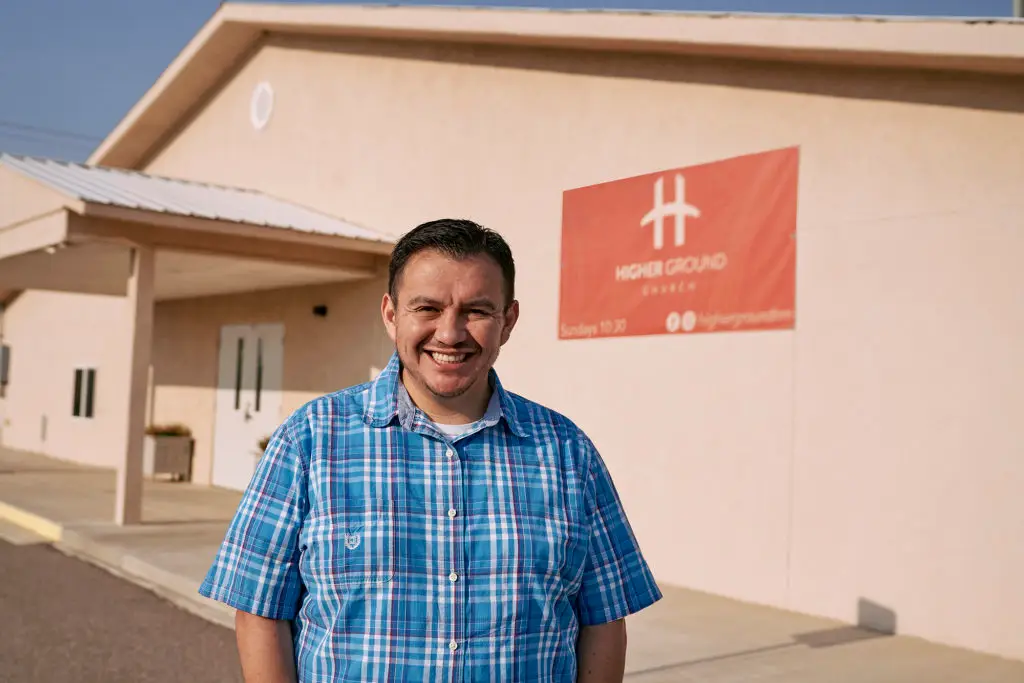FARMINGTON, N.M. (BP) – For a while now, Joshua Valdez has felt that his call to Farmington was a call to go out and look for the lost.
But during the recent COVID-19 pandemic, that call shifted to include physical as well as spiritual lostness.
“Right now, I’m doing home visits to find missing students,” Joshua said.

Up until the pandemic, his “day job” as an intervention specialist at a local high school had allowed him the opportunity to build relationships with students within the walls of the school.
When everything came to a halt during the pandemic, however, Joshua’s school moved to virtual classes, and he hit the pavement knocking on doors to find students who hadn’t shown up to their online classes.
“My job basically is to be a mentor to students who are at risk of dropping out,” Joshua said of his role at the high school. “I see the hopelessness of the youth. Most of them are coming from really rough situations.”
A city in crisis
In general, the city is a tough place to live, he said. There’s a lot of emotional and spiritual darkness. Farmington’s residents are mostly Hispanic and Navajo, and the Navajo are very much “a forgotten people,” said Joshua, who himself is half Hispanic, half Navajo. “People just don’t think about them.”
Drugs are rampant there, as is alcohol abuse. Poverty and child-hunger numbers are high. Joshua understands that kind of heritage. His mom was raised by his great-grandmother on the reservation because his grandmother was an alcoholic. But one day Joshua’s grandmother met Jesus and was radically changed. Then, his mom started going to church and became a Christ-follower, too.
That’s the kind of hope he wants to share with the whole Farmington area. More than half of the county is religiously unaffiliated, and those who do say they believe in something are caught between competing faiths – Native American mysticism, Catholicism, Mormonism and nominal Christianity.
“We’re ministering here in an area that is religiously diverse, but it’s also sizably post-Christian,” Joshua said.
When it comes to sharing the Gospel, the biggest challenge “really depends on who you’re talking to,” he said.
But one thing is common to almost all of his conversations. It’s likely the person he’s talking with will be struggling with despair or feelings of worthlessness. Joshua sees that all across the city where he serves as a church planter.
He also sees it with the students he builds relationships with at the high school.
A ray of hope
They’re from the “very lowest stratum” socially and economically, Joshua said, and many of them come from broken homes.

But they’ve grown to trust Joshua, and the walls have come down. He’s seeing some of them visit his church plant, Higher Ground Church. The teens are not anti-Christian, he said. They’re kind of neutral and sometimes even intrigued, so they’re open to asking questions. During youth group gatherings at the church, he teaches the Bible verse by verse, and he’s seeing it change lives.
“I asked one of the teens why she came, and she told me that it gives her hope, that she didn’t have purpose before that,” Joshua said.
Another young man who came to Higher Ground Church had a reputation in the school district for being suicidal and depressed.
“No one could get through to him,” Joshua said, “but he’s a different person now. And I think in large part that has to do with his coming to youth group and being loved on by Christians.”
Seeing that kind of change excites Joshua, as does the outreach the church gets to do in the community. Before the pandemic hit, church members were able to begin building relationships in a nearby mobile home park and even held Vacation Bible School and other activities for the children there.
“The kids remember us,” he said, “and they’re constantly asking about us, ‘When are you coming back, and when are you getting a van so that way we can go to church?’”
Joshua said he hopes the answer to that, and to getting outreach activities really rolling again, is soon. The pandemic slowed their momentum in many ways, he said, which has been difficult and discouraging at times. But in other ways he’s seen ministry strengthened.
“When we met together as a church for the first time since the pandemic began, it was a sweet moment,” he said, noting that it showed all of them how much they missed and needed the community they had found in Christ at Higher Ground Church.
“Emotionally I had never felt anything like that,” Joshua said of the reunion. “That was a positive thing for us.”
The Annie Armstrong Easter Offering provides half of NAMB’s annual budget, and 100 percent of the proceeds go to serve missionaries in the field. The offering is used on the field for training, support and care for missionaries like Joshua and for evangelism resources.
This article was written by Grace Thornton, a freelance writer in Alabama. It was originally published at baptistpress.com.

